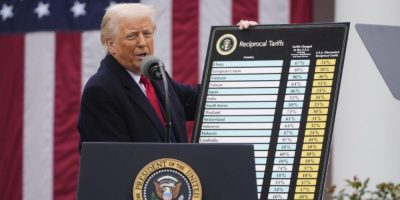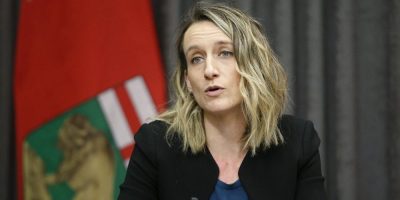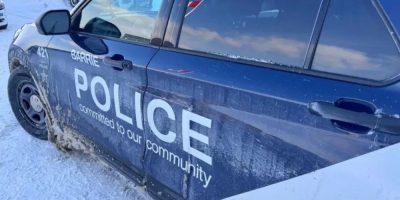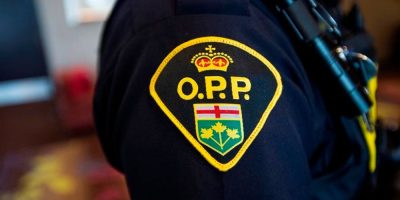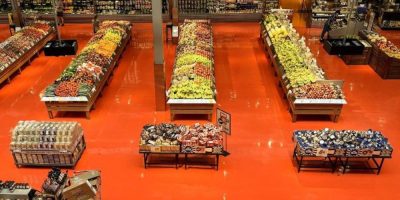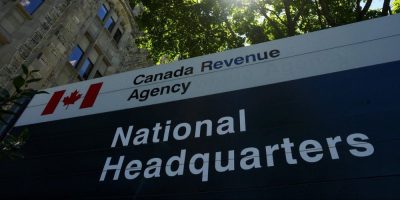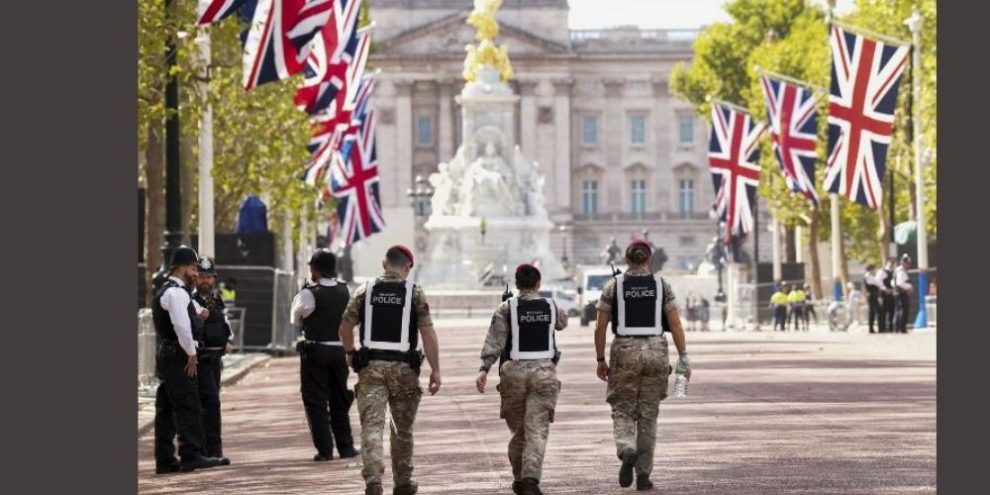
By Morgan Lowrie in London
The outpouring of public mourning and affection for Queen Elizabeth II is taking place against the backdrop of an "unprecedented" security operation that is only expected to grow larger as world leaders arrive in London for Monday's funeral.
Prime Minister Justin Trudeau was expected to land Friday as part of a Canadian delegation that includes Gov. Gen. Mary Simon and four former prime ministers.
Hundreds of thousands of members of the public are expected to travel to London for the funeral, as well as dozens of other world leaders including U.S. President Joe Biden.
Streets around the Palace of Westminster were blocked off with metal barricades on Friday, with a large contingent of police from across the United Kingdom directing the crowd who had come to pay their respects to the queen.
Security consultant Will Geddes described the operation unrolling in London as "unprecedented."
"It's almost if you combined the 2012 Olympics with the London Marathon, with all the royal family members' weddings that we've seen, and converged all together as one," he said in a telephone interview.
Geddes said some 750,000 people are expected to come to the city on Monday, in addition to those who have been arriving in recent days.
That's in addition to world leaders, whose arrival and movement require careful planning and significant police resources.
Members of the army, the Royal Navy and fire officials could be seen milling in the streets of London on Friday, while black vehicles with tinted windows occasionally sped by behind police motorcycle escorts with flashing lights.
The buzz of an overhead helicopter greeted crowds emerging from the queen's lying-in-state at Westminster Hall after they lined up for hours, and kilometres, under the supervision of an army of private security hired by the city.
In addition to the visible security on the street, Geddes said there is far more happening behind the scenes, including security cameras, plainclothes officers, snipers and special forces on standby to intervene if a "drastic" event occurs.
He said most world leaders, including Trudeau, will bring their own security personnel. But those will have to co-ordinate with the United Kingdom, which is ultimately responsible for controlling all the security around the events and during visits.
He believes only three leaders have been granted exceptions allowing them to more fully manage their own transport and security: Biden, President Isaac Herzog of Israel and Japanese Emperor Naruhito.
A visiting professor at the University of Suffolk who studies crowd management says the security plan for the queen's funeral has been in development for decades.
G. Keith Still says the effort involves high levels of co-operation between agencies to manage elements that include VIP security, counterterrorism and crowd management, as well as the health and welfare of those who gather. Security of leaders, he said, also needs to be balanced with efficiency and allowing traffic to flow.
"All of these plans were put into place years, decades ago, and will have been refined as the world has changed with COVID, post-COVID," he said. "All of those situations have been factored in."
Unlike an event such as the Olympics, the plans for the queen's death had to be put in place with little notice. But Still said that doesn't matter, because the 10-day plan was prepared to be deployed at any time.
The security effort involves not just VIP leaders but also managing the kilometres-long lineup of people waiting hours to reach Westminster Hall to view the queen's coffin.
On Friday, the government's Department for Digital, Culture, Media and Sport temporarily closed the queue, saying it had reached capacity. It reopened several hours later, with listed wait times of over 24 hours.
Still says officials have to constantly look at contingency plans, including for medical interventions if a large number of people overestimate their ability to stand in line, or if the weather becomes extreme.
The state funeral on Monday will be attended by world leaders, royalty, church leaders, charities and members of the public who have been recognized for their service.
After the service, King Charles III and other members of the Royal Family will walk behind the gun carriage carrying the queen’s coffin in a procession that will include members of the armed forces from around the Commonwealth, including the Canadian Armed Forces and RCMP. The Mounties announced on Friday that five members of its famous Musical Ride will take part in a ceremonial capacity and be seen near the front of the procession.
In addition to Trudeau, Simon and their spouses, Canada's delegation will include former governors general Michaëlle Jean and David Johnston, as well as former prime ministers Kim Campbell, Jean Chrétien, Paul Martin and Stephen Harper.
Canadian First Nations, Inuit and Métis leaders will also attend, as will several Order of Canada recipients including former swimmer Mark Tewksbury and actress Sandra Oh.
Banner image: THE CANADIAN PRESS/Nathan Denette
This report by The Canadian Press was first published Sept. 16, 2022.

